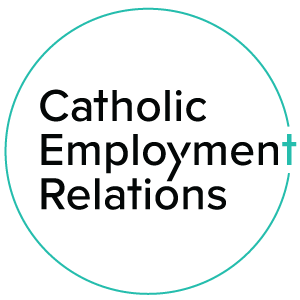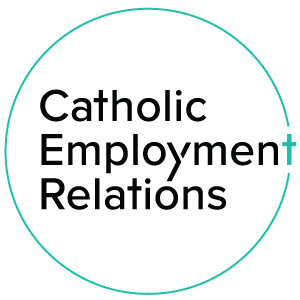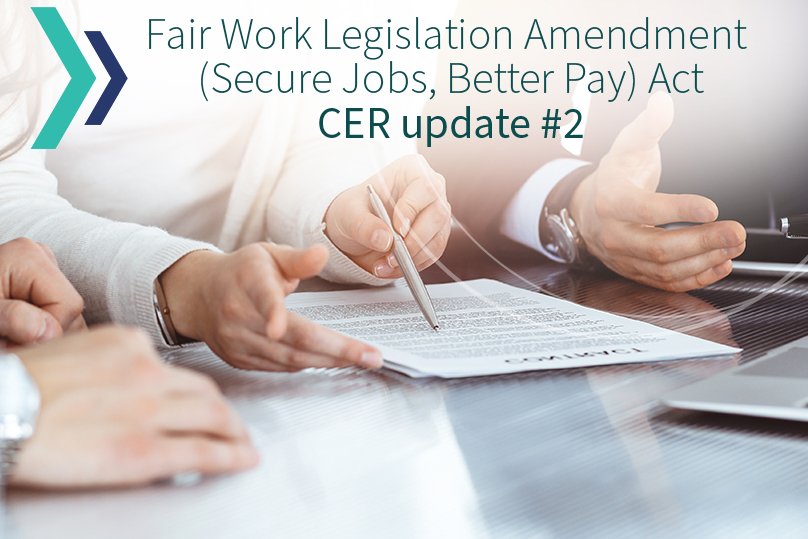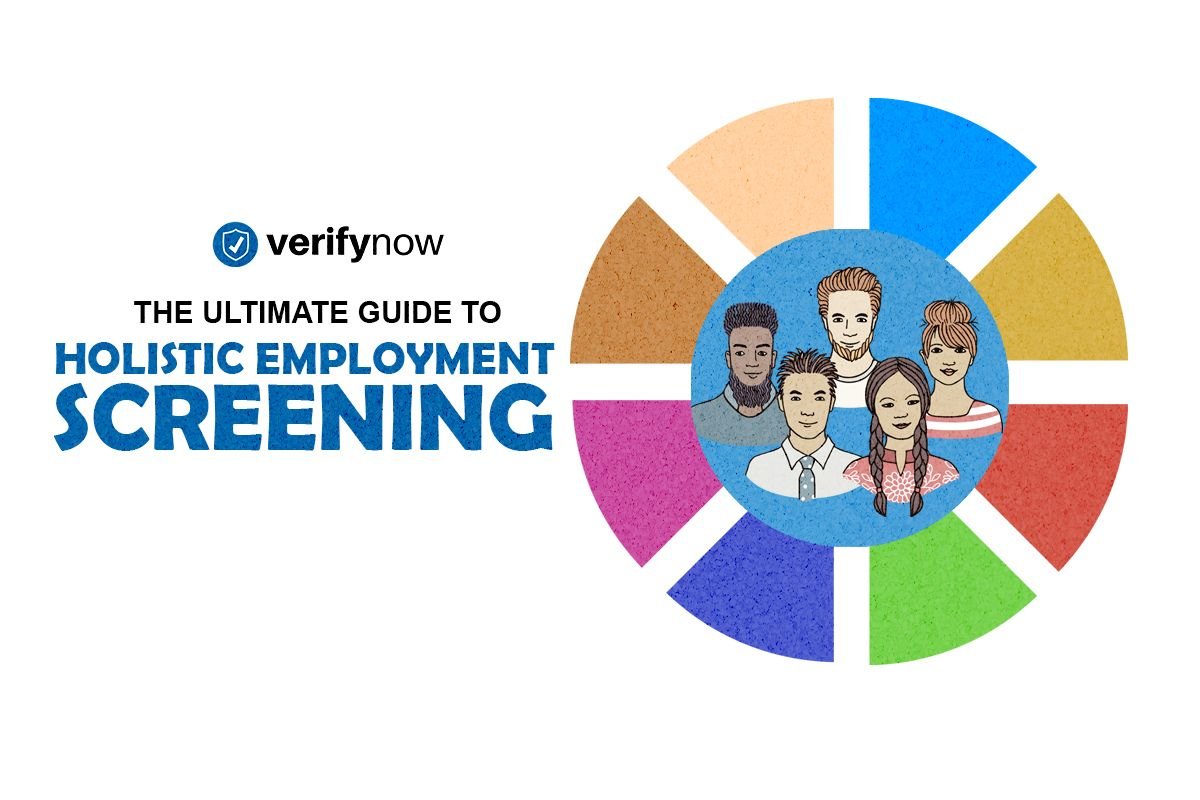
Stay up to date
Employers must extend their flexibility in dealing with employee requests
Employers will have new obligations and requirements from June 6 2023, regarding requests for flexible working arrangements and unpaid parental leave extensions, necessitating a review of current practices, discussions with employees, consideration of alternative changes and update to current procedures. Please seek guidance to ensure compliance with the new obligations.
CER update - Understand your obligations in relation to flexible working
There are amendments to flexible working arrangements and unpaid parental leave extensions, which will come into effect on 6 June 2023. Employers must be aware of their new obligations and requirements and take action to review and update their practices and policies to ensure compliance with the amendments. This article details the actions that employers should take to prepare for the new requirements.
Pre-Shift work – what is it and when do employees need to be paid for it?
In this article recent decisions relating to ‘shift-work’ are explored emphasising the importance for employers to accurately evaluate what constitutes 'time worked' to avoid potential legal disputes and underpayment claims. It provides practical tips for employers to ensure compliance with pay-related obligations and provides guidance on determining whether pre-work activities should be considered 'work' and thus require payment.
Directing employees to work public holidays
The Full Federal Court of Australia has made a significant decision regarding the right of employers to require their employees to work on public holidays. The court ruled that employers are not allowed to direct employees to work on public holidays but must instead make a reasonable request and consider the factors listed in Section 114(4) of the Fair Work Act. This decision may cause difficulties for employers who rely on rostering in advance, particularly those covered by the Social, Community, Home Care and Disability Services Industry Award 2010.
Fair Work Legislation Amendment - update #4
The changes introduced by the Fair Work Amendments, which we will cover in this update, include provisions to:
Sexual harassment
Anti-discrimination and special measures
Equal remuneration
Fair Work Legislation Amendment - update #3
The changes introduced by the Fair Work Amendments, which we will cover in this update, include provisions to:
Industrial action
Single interest employer bargaining stream
Supported bargaining stream
Fair Work Legislation Amendment - update #2
The changes introduced by the Fair Work Amendments, which we will cover in this update, include provisions to:
Initiating bargaining – the changes introduced that allow unions to initiate bargaining
Termination of enterprise agreements after nominal expiry date
Dealing with errors in enterprise agreements
Fair Work Legislation Amendment - update #1
The changes introduced by the Fair Work Amendments, which we will cover in this update, include provisions to:
Abolition of the Australian Building and Construction Commission (ABCC) and Registered Organisations Commission (ROC)
Prohibition on pay secrecy
Prohibition on advertising contravening pay rates
Sunsetting ‘zombie’ agreements
Time to update your workplace policies
A timely reminder to update your workplace policies. Attention Employers: Fair Work Act amendments – update your policies and WHS risk management frameworks
As you may be aware, the recent Fair Work Act amendments require employers to address and manage risks in several areas affecting their employees.
Flexible working requests - reasonable business grounds objection
When considering flexible work requests employers should consider key factors and ensure that they are complying with relevant laws and regulations. By considering these factors, employers can evaluate flexible work requests and make informed decisions that benefit both the employee and the organisation.
When is an overtime request considered unreasonable?
Employers are responsible for ensuring that the overtime they request is reasonable and that employees are not being asked to work excessive or unreasonable hours. If you are concerned that the overtime you are asking your employees to work is unreasonable or are unsure of award rates, you can seek advice from our expert employment lawyers, contact us.
Paid Family and Domestic Violence leave update
Paid Family and Domestic Violence Leave – starts 1 February 2023
Fair Work Legislation Amendment (Secure Jobs, Better Pay) Act 2022
Do you understand the changes as a result of the amendment to the Fair Work legislation passed on 6 December 2022? What are the changes, how will they affect your organisation, and when exactly will they come into effect?
Workplace bullying - a case study example
This case serves as a clear message to employers and organisations that an employee who has suffered psychological injury from bullying and harassment, can recover Fair Work compensation in addition to damages for psychological and or physical injuries.
The Respect@Work Bill and what it means for employers
The Anti-Discrimination and Human Rights Legislation Amendment (Respect at Work) Bill 2022 (the Bill) has been introduced to Parliament this week.
Crown Employees Salaries and Conditions Award 2022
On November 11, The Industrial Relations Commission NSW (NSW IRC) published its decision on the Application for the Crown Employees (Teachers in Schools and Related Employees) Salaries and Conditions Award 2022.
Managing psychosocial hazards in the workplace
The recent amendment made to the Work Health and Safety Regulation 2017 (NSW) by the Work Health and Safety Amendment Regulation 2022 (NSW) imposes an explicit obligation on persons conducting a business or undertaking (PCBUs) to manage and control psychosocial risks in the workplace, from 1 October 2022.
Family Domestic Violence leave request update
Employers need to be mindful of any Enterprise Agreement provisions regarding family and domestic violence leave which may conflict with the new NES entitlement, and ensure they provide their employees with 10 days paid family and domestic violence leave as needed.
The Ultimate Guide to Holistic Employment Screening
Read CER’s trusted employment screening partner VerifyNow’s guide to background screening options and the benefits these can bring as part of your hiring process.
CER’s guide to creating a safe and positive work environment
How do you ensure you are providing a safe work environment?
Follow our practical guide to ensure that the work environment you are providing is a healthy and safe workspace. October is National Safe Work month
Check out our resources

Contact us today
We look forward to helping you and your workplace. Get in touch today.





















